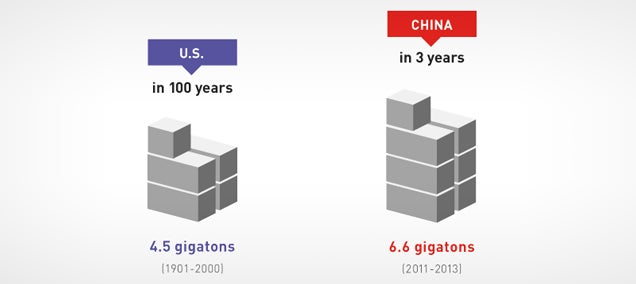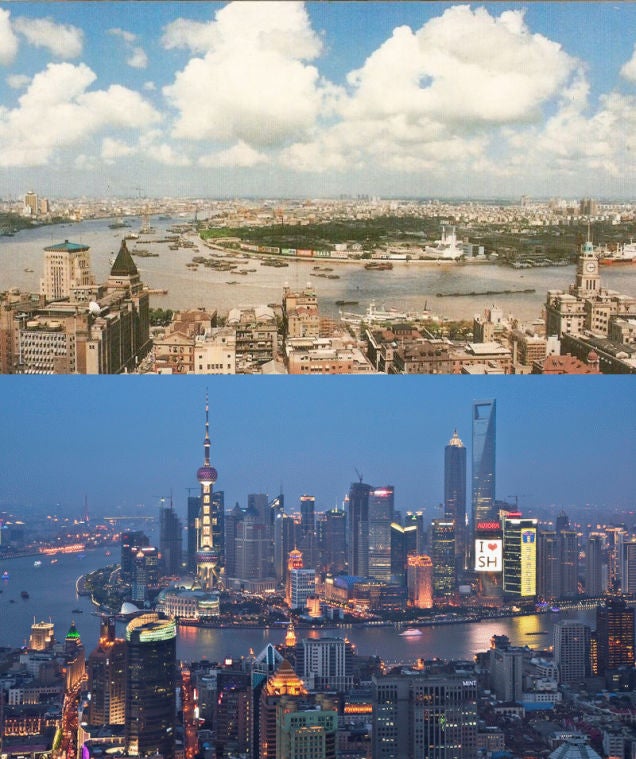Equation
Lieutenant General
The world's new tastemaker: China
Steven Butler, OZY 8:03 a.m. EST February 21, 2015
For years, pastries in China have been stuffed with red bean paste. But every weekend, when Hong Tang Ran stops by BreadTalk, a big pastry chain in Beijing, the 34-year-old ends up buying chocolate sweets instead. As for bean paste? He doesn't think his 6-year-old has ever tried it. "I don't think she would like it," he says.
The times they are a-changin' — and so are the tastes of Chinese consumers. The days of U.S. baby boomers as the post-World War II royalty of global consumption are fading, and a new group of shoppers is rising. Even the slice of China's so-called "generation two" consumers who are in their teens or early 20s and have comfortable amounts of money to spend — a demographic of 200 million — are expected to outnumber American baby boomers three times over by 2022, according to the consulting firm McKinsey.
Already, Chinese consumers have become the biggest group of car buyers in the world, including the No. 1 market, by volume, for all-American brand General Motors. And they've purchased more computers than consumers from any other country — for nearly the past four years. Now, it seems, they're dominating practically every industry.
China has quickly become one of the main consumers of cocoa, for which sales have grown 6 percent annually in recent years. As for those pastries? The country goes through about 4 million tons each year — roughly two and a half times the amount eaten in the U.S., and more than any other nation. Its consumers are also big fans of flavored milk drinks. You guessed it: China has become the world's top market in this area as well.
Given China's enormous population — around 1.35 billion people versus a measly 324 million in the U.S. — it was, perhaps, only a matter of time before these shifts happened. And yet the trend is only just starting to take hold, creating ever bigger potential opportunities for global companies as Chinese consumers, who are mainly located in cities, spend more and more money. But inevitably, experts say, there's going to be a boomerang effect, in which trends in China lead companies there to leverage their growing prowess and spread far beyond their homeland's borders.
Many of these changes are being driven by China's accelerated economic output, which stood at a mere $864 per capita at the turn of the millennium. By 2013, it was nearly eight times as large, at $6,800. Meanwhile, Chinese household spending has been growing by about 8 percent annually. David Dollar, a senior fellow at the Brookings Institution, a think tank, says growth could continue at that pace — roughly doubling in nine years — even as other drivers of the economy, exports and investment, slow down.
While the Chinese market is huge, it's not always easy for foreign companies to get in. High income inequality, which limits the average person's purchasing power and squeezes company profit margins, is just one inhibiting factor. Regional diversity, which makes China seem like it encompasses many markets rather than one, and tough local competition from both legit businesses and street vendors selling counterfeit goods are also issues, says An Hodgson, a retail analyst at market research firm Euromonitor International.
But some companies have found success there. Luxury German car sales are higher in China than anywhere else in the world, for instance. "Brands are very important to Chinese people," says Shi Dan, a sales rep at a Mercedes dealership in Beijing's Chaoyang District. Meanwhile, electric-vehicle sales are forecast to overtake the U.S. within the next two years, according to Neil King, Euromonitor International's automotive analyst, and that's expected to create an opportunity for Chinese carmakers to develop new models for the cheaper end of the market — and eventually export those.
Similarly, Chinese TV makers, like TCL and Hisense, have begun to leverage huge domestic sales to push into foreign markets, although they are struggling for brand recognition in a crowded field. At home, China is the world's biggest market for shipments of ultrahigh-definition 4K television sets. While South Korea's Samsung still has the biggest sales volume even in China, it wasn't that long ago when the company overtook Japanese giants Sony and Panasonic in this industry. Today, Hisense is closing in on Sony as the world's No. 3 TV maker. And while it has a ways to go before it catches either Samsung or LG, given the size of the company's home-turf market and its likely growth ahead, time may be on its side.
is a USA TODAY content partner providing general news, commentary and coverage from around the Web. Its content is produced independently of USA TODAY.
Heck even traditional Chinese Moon Cakes eaten during the Autumn Festival is not popular with the younger generation. Moon Cakes now comes with a variety of flavors and fillings. My mom like the traditional one. As for me, its okay, not a big fan of it.


